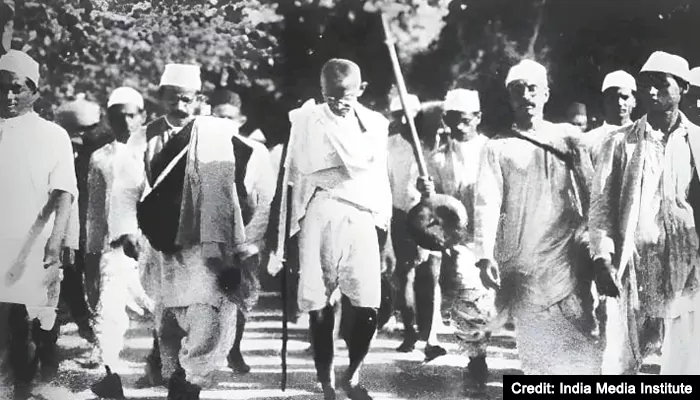
How Gandhi’s call for non-cooperation turned India into a nation on strike against Empire
On the morning of November 17, 1921, Bombay awoke to an eerie silence. Shops were shuttered, schools closed, and streets deserted. The Prince of Wales had just stepped onto Indian soil, but instead of the pomp and applause anticipated by the British, he was met with a collective act of defiance.
Across the country, millions of Indians had decided to withdraw their support from the colonial regime. This was not chaos, but something far more unsettling for the British: discipline, unity, and an iron will.
India’s patience had run out. The Rowlatt Act, which restricted civil liberties, and the horror of the Jallianwala Bagh massacre revealed the falsehood of Britain’s promises of reform.
The Montagu-Chelmsford “dyarchy” scheme provided Indians with a superficial form of self-rule, while actual power stayed firmly in British hands. Gandhi, once a supporter of British justice, realised that cooperating with such a regime meant complicity in oppression.
Instead of advocating violent rebellion, Gandhi suggested something even more radical: non-cooperation. It was rooted in an ancient principle—withdraw consent, and the ruler becomes powerless.
If Indians refused British schools, courts, councils, and goods, the colonial state would weaken. The brilliance lay in its simplicity. Every villager, farmer, lawyer, or student could take part. Every act of refusal was a stone taken from the Empire's structure.
The boycott spread rapidly. Within weeks, over 9,000 students walked out of colonial schools to join the newly established “national schools.” In Bengal, under leaders such as C. R. Das and a young Subhas Chandra Bose, the educational strike evolved into a movement. Punjab followed under Lala Lajpat Rai, and in Uttar Pradesh, Bihar, and Assam, classrooms emptied into the streets.
Lawyers also abandoned their lucrative practices. Motilal Nehru, Chittaranjan Das, and others sacrificed careers that had been built over decades. Their sacrifice became a guiding light for ordinary citizens. But perhaps the most noticeable blow to the Raj was economic: the boycott of British cloth. Imports declined from ₹102 crore in 1920–21 to just ₹57 crore the following year. The spinning wheel became both symbol and weapon—homespun khadi turning into a quiet protest against imperial industry.
The movement was not only political but also deeply social. For the first time, Indian women emerged in large numbers. In Bengal, Basanti Devi, Urmila Devi, and Nellie Sengupta marched alongside men, selling khadi, picketing foreign cloth shops, and leading protests. Their bravery showed that the fight for swaraj was no longer the domain of elite men — it was a people’s movement.
The British responded with arrests, censorship, and bans. By the end of 1921, over 30,000 activists had been imprisoned across India. However, the tide appeared unstoppable.
What alarmed the colonial authorities most was not violence but organisation: Congress volunteer groups marching like a police force, hartals carried out with clockwork precision, and villages across Bengal and Uttar Pradesh rising as if in unison.
But then tragedy struck. In February 1922, a protest in the small town of Chauri Chaura turned violent. A mob set fire to a police station, killing twenty-five officers.
For Gandhi, who made non-violence the core of the struggle, this was a line that could not be crossed. Despite protests from many Congress leaders, he called off the movement. To some, it felt like defeat. To others, it proved Gandhi’s moral strength.
Measured by its immediate aims, the Non-Cooperation Movement fell short of its objectives. Swaraj did not arrive within a year. The Khilafat issue diminished. Yet, the real achievement was much greater: it broke the myth of British invincibility. Millions had, for the first time, acted together against the Empire. The boycott may have ceased, but the spell of submission was shattered.
From that moment, the Raj could never again regard India’s silence as consent.